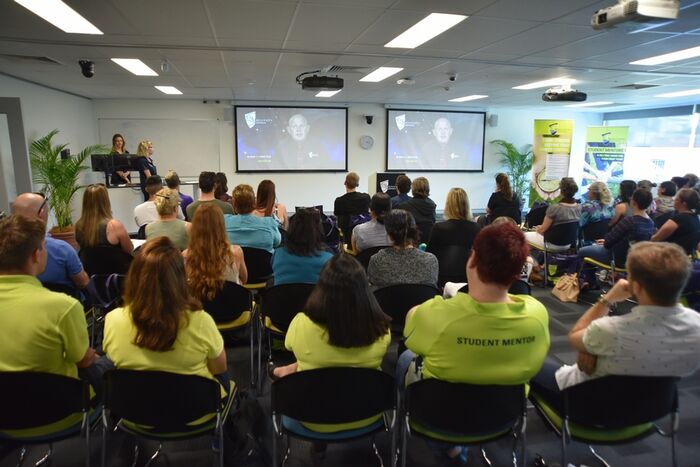Cairns: city of the future
TropicNow columnist Elizabeth Pickworth believes the Tropical North could position itself as a regional hub for jobs of the future.

Last year, the Sydney Morning Herald ran a series of features that examined the impact technology could have on jobs for Australia’s largest capital city.
The articles included predictions from economists and futurists on where Australia’s jobs of the future would be in 2026 due to innovation and workforce automation. The impact would almost certainly be felt in the Tropical North, too.
It was predicted that several industries and jobs would be obsolete due to automation, and Australians needed to brace themselves for the need to reskill due to the changing nature of technology and globalisation.
It was also predicted that around 40 percent of jobs would be in the IT, professional services and finance sectors, leaving many low-skilled workers out in the cold.
Capital cities are also known as knowledge economies, places where the best and brightest flock for new opportunities and innovation.
However, you only need to see how the high cost of living is impacting on those capital cities. A topic that most people talk about is the extended adolescence Gen Y is experiencing because of property ownership, which is out of reach for many.
That leaves those who can’t afford to spend their hard-earned cash on ‘smashed avocados,’ as Bernard Salt of the Australian wrote in his tongue-in-cheek article about why Gen Y can’t afford houses.
What is rarely talked about and addressed is the impact that the rising cost of living is having on our youth and how this will greatly affect innovation in the future.
How can we expect young people to be innovative when they are struggling to live from paycheque to paycheque?
We certainly can’t expect them to live in grossly expensive cities, work three jobs and study to become the next Steve Jobs. What we could do is provide better infrastructure in out of city areas, or provide grants to attract them to smaller economies and cities such as Cairns.
You often hear about retirees, or those nearing retirement, looking for a sea change and move up north where the weather is warmer (well, a lot warmer!), the nature abundant and the people so laid back they make the peak hour commutes a distant memory.
You seldom hear about youths moving to smaller cities to embark on their careers or begin university.
Cairns is an innovative city with both CQUniversity and James Cook University expanding and providing world-leading research.
Cairns is home to the Great Barrier Reef, the Daintree Rainforest and countless ecosystems for unique marine life. It is seriously heaven on Earth! Cairns also has one of the best public hospitals in the country, though more funding to meet population growth and health needs is always required.
However, what is seriously lacking in Cairns is economic innovation and the expansion into a various industries which would see Cairns thrive and provide ample jobs for its local community, including older people who face various levels of discrimination when seeking employment (that is another column for another time).

There have been various success stories where government departments have offloaded their operations from city centres into regional hubs, small satellite cities that have provided jobs for the local economy at the fraction of the cost of operating in a major city.
For instance, the Australian Taxation Office opened an office in Albury, New South Wales, and NSW WorkCover (part of a larger consolidation of state government services) opened an office in Newcastle, NSW.
Both are responsible for providing thousands of jobs and have saved on their bottom line owing to the lower cost of operating a business in a semi-regional area. Cairns now has this opportunity, not just for government services, but for private enterprise too.
If many jobs and industries are going to be lost over the coming decade because of workforce automation, there are industries that still require a personal touch. That is, customer service. Nobody likes to talk to a robot.
When you have a problem, you want to talk to a real person who is local, so they have a good grasp on the issues you are facing in your community or region and in the same time zone. When you are having a problem, it is always best to have an empathic voice over the phone that helps you through it.
Technology powerhouse Apple has embraced the idea of a remote workforce with its army of At Home Advisors. They tackle complex cases on the phones for customers all across Australia right from the comfort of the advisors’ home.
Cairns has a population ready to work, affordable cost of living and the infrastructure to support a call centre, customer service and technology-led industry. Why stop there?
Companies could sponsor job seekers and help skill them in partnership with certificates, diplomas and degrees in IT and various industries so that Cairns can become the innovative hub of Australia.


